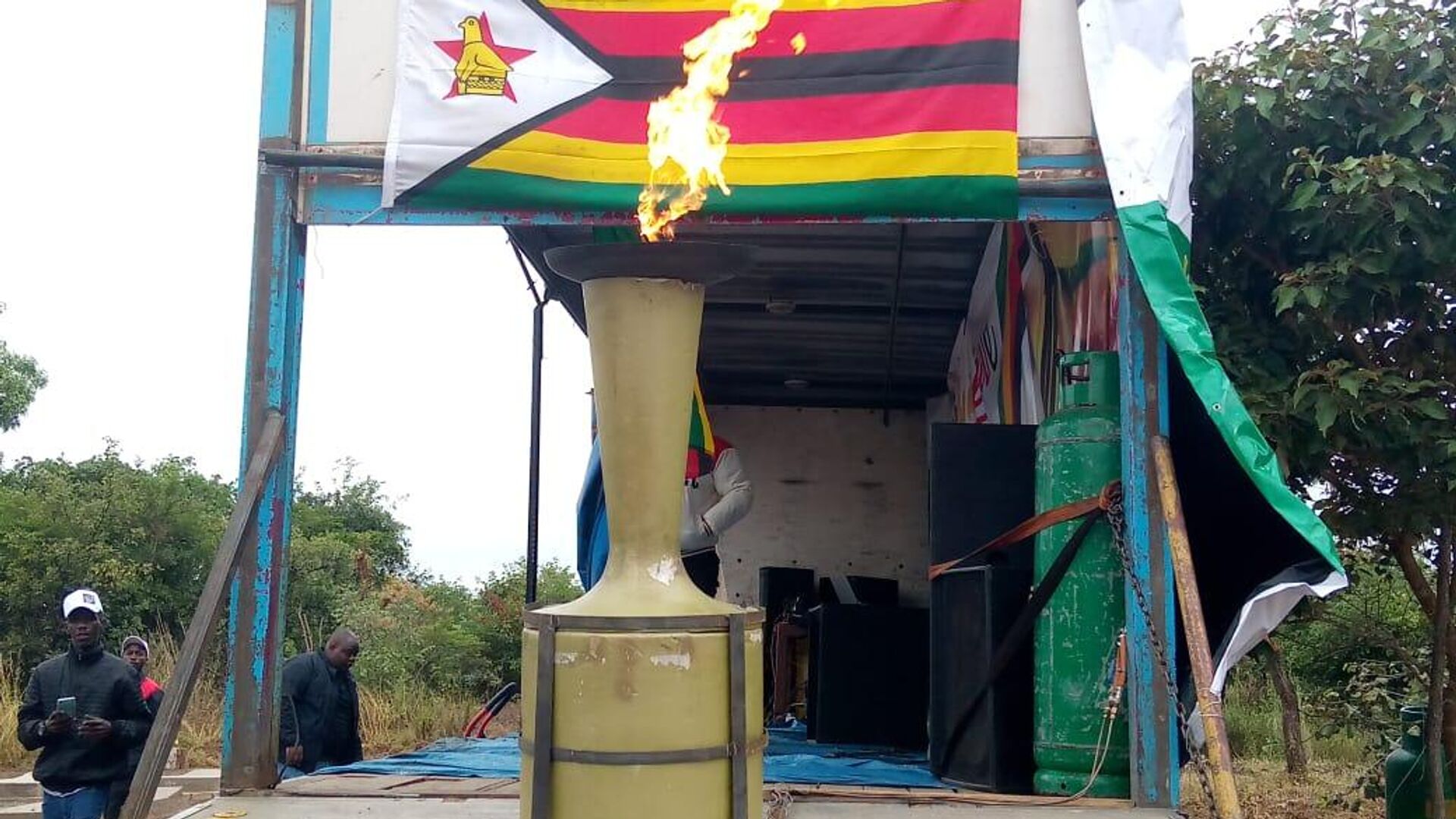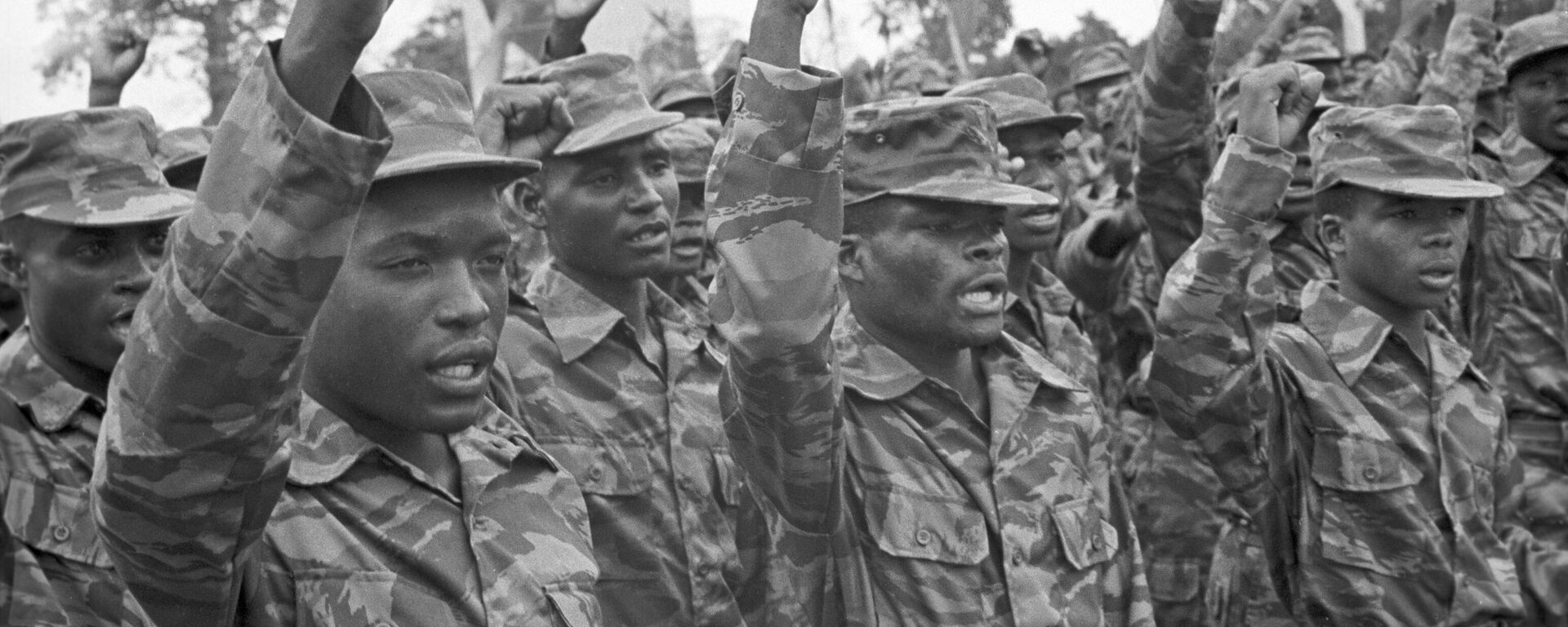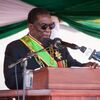https://en.sputniknews.africa/20240418/zimbabwe-marks-independence-day-celebrating-freedom-from-colonial-rule-1066125843.html
Zimbabwe Marks Independence Day: Celebrating Freedom From Colonial Rule
Zimbabwe Marks Independence Day: Celebrating Freedom From Colonial Rule
Sputnik Africa
On Thursday, Zimbabweans celebrate the 44th anniversary of independence from the UK, a national holiday that invites citizens to reflect on the country's... 18.04.2024, Sputnik Africa
2024-04-18T13:20+0200
2024-04-18T13:20+0200
2024-04-18T13:20+0200
sub-saharan africa
zimbabwe
emmerson mnangagwa
politics
united kingdom (uk)
history
national holiday
independence
southern africa
https://cdn1.img.sputniknews.africa/img/07e8/04/12/1066127744_0:97:1040:682_1920x0_80_0_0_0b5bf248abc50281a50f9c98439f5c8e.jpg
What is now known as Zimbabwe was heavily influenced by Europeans following the arrival of the British South Africa Company in the 1890s. The venture was founded by Cecil Rhodes, an English mining magnate and politician in southern Africa, in 1889, in order to colonize the region. The area became known as Southern Rhodesia (in honor of Rhodes) in 1898 and was governed by the British South Africa Company until 1923, when the United Kingdom declared Southern Rhodesia a self-governing colony.In 1964, Ian Smith became Prime Minister of Rhodesia, which had dropped the "Southern" from its name. He was a strong and consistent supporter of the declaration of Rhodesian independence under white rule. Independence was declared in 1965 but was not recognized internationally, leading to sanctions against the country as well as a widespread campaign of guerrilla warfare within Rhodesia and the emergence of the ZANU-PF organization.The armed struggle of Zimbabweans against the racist regime led to the proclamation and recognition of the independence of the state, the Republic of Zimbabwe, on April 18, 1980.Zimbabwe's large-scale 44th independence anniversary celebrations on Thursday are being held under the theme "Unity, Peace and Development: Towards Vision 2030," with the festivities centered at the Murambinda B High School stadium in Manicaland province in the east of the country.At the stadium, some 70,000 Zimbabweans had a chance to enjoy the Independence Parade, the culmination of which was the lighting of the Independence Flame. There will also be a gala concert with many headlining artists as well as a traditional football match between the country's top teams.A day before the celebrations, Zimbabwean President Emmerson Mnangagwa called on his fellow citizens to unite and remember their roots.On Independence Day, the president also granted amnesty to over 4,000 convicts in various categories and commuted the death sentences of all inmates who had been on death row for 10 years or more to life imprisonment.
https://en.sputniknews.africa/20240324/southern-africa-liberation-day-remembering-struggle-for-freedom-against-racism-1065727423.html
zimbabwe
united kingdom (uk)
southern africa
Sputnik Africa
feedback@sputniknews.com
+74956456601
MIA „Rossiya Segodnya“
2024
Maxim Grishenkin
https://cdn1.img.sputniknews.africa/img/07e7/0a/17/1063018107_0:0:1104:1103_100x100_80_0_0_03090c85a11f5d2e8a19cf1d989443c9.jpg
Maxim Grishenkin
https://cdn1.img.sputniknews.africa/img/07e7/0a/17/1063018107_0:0:1104:1103_100x100_80_0_0_03090c85a11f5d2e8a19cf1d989443c9.jpg
News
en_EN
Sputnik Africa
feedback@sputniknews.com
+74956456601
MIA „Rossiya Segodnya“
Sputnik Africa
feedback@sputniknews.com
+74956456601
MIA „Rossiya Segodnya“
Maxim Grishenkin
https://cdn1.img.sputniknews.africa/img/07e7/0a/17/1063018107_0:0:1104:1103_100x100_80_0_0_03090c85a11f5d2e8a19cf1d989443c9.jpg
zimbabwe, emmerson mnangagwa, politics, united kingdom (uk), history, national holiday, independence, southern africa
zimbabwe, emmerson mnangagwa, politics, united kingdom (uk), history, national holiday, independence, southern africa
Zimbabwe Marks Independence Day: Celebrating Freedom From Colonial Rule
On Thursday, Zimbabweans celebrate the 44th anniversary of independence from the UK, a national holiday that invites citizens to reflect on the country's history and look to the future.
What is now known as Zimbabwe was heavily influenced by Europeans following the arrival of the British South Africa Company in the 1890s. The venture was founded by Cecil Rhodes, an English mining magnate and politician in southern Africa, in 1889, in order to colonize the region.
The area became known as Southern Rhodesia (in honor of Rhodes) in 1898 and was governed by the British South Africa Company until 1923, when the United Kingdom declared Southern Rhodesia a self-governing colony.
In 1964, Ian Smith became Prime Minister of Rhodesia, which had dropped the "Southern" from its name. He was a strong and consistent supporter of the declaration of Rhodesian independence
under white rule. Independence was declared in 1965 but was not recognized internationally, leading to sanctions against the country as well as a widespread campaign of guerrilla warfare within Rhodesia and the emergence of the
ZANU-PF organization.
The armed struggle of Zimbabweans against the racist regime led to the proclamation and recognition of the independence of the state, the Republic of Zimbabwe, on April 18, 1980.
Zimbabwe's large-scale 44th independence anniversary celebrations on Thursday are being held under the theme "Unity, Peace and Development: Towards Vision 2030," with the festivities centered at the Murambinda B High School stadium in Manicaland province in the east of the country.
At the stadium, some 70,000 Zimbabweans had a chance to
enjoy the Independence Parade, the culmination of which was the lighting of the Independence Flame. There will also be a gala concert with many headlining artists as well as a traditional football match between the country's top teams.
A day before the celebrations, Zimbabwean President Emmerson Mnangagwa
called on his fellow citizens to unite and remember their roots.
"We should embrace the values of our liberation, by always respecting and loving one another. Your language, culture, and traditions might be different, but you are all Zimbabweans. We fought for our independence and freedom from colonial rule, now we are a free people. You, our children, must always be proud of being Zimbabwean, our rich history and national identity."
Emmerson Mnangagwa
President of Zimbabwe
On Independence Day, the president also granted amnesty to over 4,000 convicts in various categories and commuted the death sentences of all inmates who had been on death row for 10 years or more to life imprisonment.




